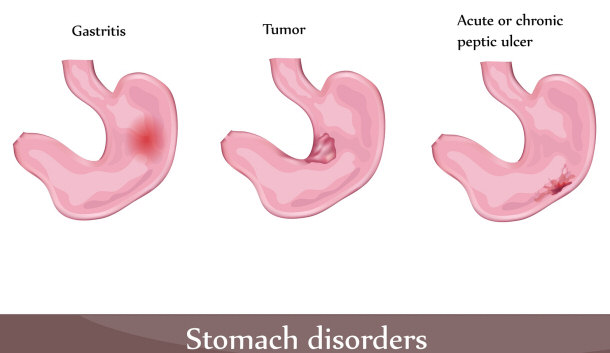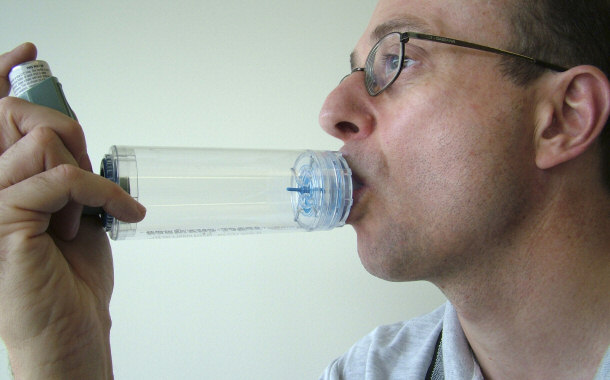10 Health Problems Caused By Bad Teeth
Introduction
Not that you need a reason to routinely clean your teeth beyond basic hygiene,
but there is another even more fundamentally important reason to do so – it may
save your life. Yes, the human body is a remarkable machine. But like a machine,
if there is failure to keep up with maintenance and keep it running at maximum
efficiency, it can and will break down on you – sometimes in the most unexpected
(and sometimes even fatal!) of ways. Dental problems do not just affect the
mouth, and something that started as a small cavity or infection could lead all
the way to a stroke just a few years later if left unchecked.
Before and After Dental Treatment

10) Memory Loss
Caused by Absent Teeth
Recent research suggests that the loss of teeth may directly or at least
partially contribute to memory loss as you age. This is due to the sensory
impulses in your teeth that chewing creates which go to the brain. These
impulses connect to the part of the brain responsible for retrieving and forming
memories, the hippocampus. Scientists have found that fewer signals are produced
in individuals without their own teeth.
In one study, subjects participated in performance tests that addressed
episodic memory (which relates to past memories) and semantic memory (which
relates to fact-based information). Researchers found that older people who
still had their original teeth had a better memory than individuals without.
The More Teeth, The Better Memory Will Be in Old Age

Researchers acknowledged that the issue may relate to chewing – something
that encourages blood flow throughout the brain – not necessarily tooth loss.
Interestingly, researchers found that dental implants did actually assist to
some degree in the restoration of sensory input. However, this still resulted in
less signals to the brain than those with their own teeth.
9) Heart Disease
Caused by Dental Disease
Cardiologists and periodontists have often debated about a potential association
of oral health and heart disease. Inflammation is common in both diseases.
Recently, after examining more than 120 published position papers, medical
studies and a variety of other data on gum disease and heart disease, experts in
periodontology and cardiology developed a consensus report on the potential link
between gum inflammation and heart disease. The report emphasized that gum
disease alone is a risk for coronary artery disease, with some research finding
a specific link regarding clogged arteries and gum disease.
Every System in the Body is Connected - Trouble with Your
Teeth Leads to Heart Complications

Experts still debate the extent of the link between heart health and oral
health. There are two areas with exception; bacterium found in diseased gums is
also found in blood vessels that are going through heart disease. When
individuals have gum disease, ranging from moderate to severe, their levels of
C-reactive protein (CRP) will increase. CRP levels are also used to determine an
individual’s risk of suffering a heart attack. It’s highly possible that
cavities pose a direct risk to an individual’s heart, as the bacteria that cause
them can make their way into an individual’s cardiovascular system, which leads to
heart disease.
8) Alzheimer’s
Disease Linked to Gum Inflammation
Gum inflammation may be associated with brain inflammation, along with
neurodegeneration and Alzheimer's disease. In 2010, NYU dental researchers
discovered evidence that gum disease may be linked with an increased danger of
cognitive dysfunction, which is related to Alzheimer's disease, affecting both
the healthy and those already cognitively impaired.
Dental Disease Leads to Dementia and Alzheimer's

One study examined a compilation of 20 years’ worth of data, finding that it
supported the link between Alzheimer’s disease and gum disease. The team
examined the cognitive function of participants when they were 50 and 70 years
of age through what is known as a Digit Symbol Test (DST), which is a standard
test for measuring adult IQ. The test measured the speed at which a subject
can connect a sequence of numbers to a corresponding line of digits and symbols.
The study found that gum inflammation at the age of 70 strongly correlated with
lower DST score at the same age. Those with gum inflammation were found
to have a significant likelihood of having a low DST score than those with low
or no inflammation.
7) Heart Attack Due
to Poor Oral Health
For over a century there have been suggestions that oral health and a healthy
heart are connected, but it’s only recently that experts have alerted the
general public to the potential association of heart attacks with tooth decay.
The potential link comes from when fatty deposits build up on the walls of
arteries, potentially resulting in blood clots or hardening of the arteries.
Different Kinds of Plaque - Oral and Cardiovascular Health
Affected Simultaneously

The American Heart Association (AHA) has examined the research
and found that the link is biologically plausible. The review found a number of
gaps in the current-day understanding in relation to the interactions of gum and
heart disease, hence there is at least a potential link and risk. Therefore,
there is a strong need for people to be wary of the potential connection.
6) Bacteria-Laden
Mouth Causes Stomach Ulcers
Research shows that an individual’s mouth can pool bacteria such as Helicobacter
pylori (H. pylori). This is a known to cause peptic ulcers if let unchecked. Weakening the
protective coating of the stomach, the bacteria can enable acid from the
digestive system to cause damage to lining of the stomach. The results are sores,
with symptoms of a chronnic, burning pain in the stomach.

Medications used to address one’s dental issues can result in peptic ulcers.
If you experience pain while recovering from oral surgery that cannot be managed
with OTC pain relievers, prescription pain killers are usually
prescribed for a very short term period. Over the counter pain remedies may
include aspirin, naproxen and ibuprofen. Taking such drugs for an extended
period of time can lead to ulcers because they stop the stomach
from protecting itself from its own acidic, digestive juices.
5) Lung Disease
Exacerbated by Gum Disease
Individuals with gum disease may end up transmitting bacteria from their mouth
to their lung, when they have tubes inserted in order to help them breathe
during medical treatment.
A 2011 study highlighted a potential connection of gum and lung disease,
finding that individuals who had been hospitalized for chronic obstructive
pulmonary disease (COPD) and other forms of lung disease had a highly likelihood
of also having gum disease than others in a control group with healthy lungs.
Space Inhaler Used in Treatment Of COPD

Explanations for why this was the case weren’t clear, but bacteria from the
mouth had made its way into the respiratory system. This led researchers to
believe the bacteria caused the lung problems. A study involving 200 participants
found individuals with respiratory illnesses had significantly worse-off oral
health than any of those in the study’s control group. This suggests a
connection involving respiratory and gum disease. Researchers theorize that
bacteria relating to gum disease may exacerbate an individual’s likelihood of
suffering respiratory illness.
4) Rheumatoid
Arthritis Worsened by Dental Problems
If you suffer from rheumatoid arthritis, then you’re going to want to take care
of your teeth. In doing so you just might significantly reduce arthritic
symptoms. Individuals with severe rheumatoid arthritis detailed relief from
symptoms of the disease once their oral health was addressed. Furthermore, tooth
loss may increase the risk of rheumatoid arthritis.
In the past, teeth were pulled in the treatment of rheumatoid
arthritis. However, this only treated the gum disease – not the arthritis.
Nevertheless, patients had invariably reported feeling better.
X-ray Showing Advancement of Rheumatoid Arthritis

The key component appears to be one toxin in particular – tumor neurosis
factor-alpha (TNF-α), which appears in the bloodstream upon the occurrence of
inflammation. TNF-α can start new infections or worsen existing ones.
In one study, two groups of participants were given new anti-TNF-α drugs,
which blocked TNF-α at areas of rheumatoid arthritis. Two groups didn’t receive
this. Half of those on medication and half of those not receiving it were
treated to standard non-surgical dental treatment to address any gum infections. Improvements in the symptoms of rheumatoid arthritis were evident in
individuals who received the non-surgical treatment, despite whether they had
received the anti-TNF-α medication. Those who took the TNF-α inhibitors
showed more significant improvements than those who did not received the
specialized drugs.
3) Gum Disease May
Cause Erectile Dysfunction
This one isn’t going to kill you, but your quality of life may sure take a hit.
Erectile dysfunction can be quite debilitating, especially among married couples. Sufferers don’t just lose their
ability to maintain or even achieve an erection, but they often also suffer from
anxiety, a lack of self-confidence, low self-esteem as well as relationship
difficulties with their partner. A study found that not brushing one’s teeth
leads to an individual being three times more likely to fall victim to erectile
dysfunction.
Researchers at Inonu University examined the oral health 160 men, ranging in
age from 30 to 40. Half had been diagnosed with erectile dysfunction and the
other half without. Out of those suffering from erectile dysfunction, 53% had
gums that were inflamed, while only 23% of the control group had gum
inflammation.
The main reason theorized is that, severe gum disease may result in vascular
diseases, like heart disease, which itself has been associated with erection
issues. Another reason presented by researchers at China's Luzhou Medical
College is that severe gum disease may restricts an individual’s capability to
develop the eNOS, an enzyme related to the ability to achieve an erection.
Another study, which highlighted a correlation between gum disease and
erectile dysfunction, indicated that the severity of the dysfunction increased
with the prevalence of gum disease. More than 81% with severe ER issues also had
gum disease. The likely cause is that when people have bacteria in the mouth, it
inevitably gets into the bloodstream, causing problem with a person’s blood
flow, which thereby make it difficult to obtain and/or sustain an erection.
Stages of Development of Periodontitis (Gum Disease)

It’s estimated that as much as 1 in every 10 men worldwide suffer from
erectile dysfunction – chances are that very few of those such individuals have
ever so much as suspected that their teeth just might be to blame.
2) Diabetes Worsened
by Dental Disease
Due to the on-going infections in one’s body, gum disease may pre-dispose
individuals or increase one’s risk of diabetes. This can be caused by the
carbohydrates in soft drinks and treats that are full of carbs that dramatically
heighten an individual’s blood sugar levels. This raises their risk of type 2
diabetes.
When an individual reaches the stage of periodontitis, their gums begin to
draw away from their teeth, causing gaps that will then fill with germs and pus
as they deepen. Not caught in time, infection will decimate bone around the
teeth and they will need to be removed and the gum treated.
Diabetes Concept Illustrating Insulin Issues in the
Pancreas

Individuals suffering from diabetes face a greater danger of severe gum
disease. They’re vulnerable to infection from bacteria as they have an immune
system significantly compromised with which to combat bacteria, coupled with a
poor healing capability. Severe gum disease may cause blood sugar to increase,
which may lead to diabetes cases becoming increasingly harder to manage.
1) Cancer Risk
Increased from Dental Problems
Yes, even you own teeth could very well give you cancer! Research has found an
association relating to high levels of bacteria or plaque, and death due to
cancer.
When you get a build-up of bacteria on your teeth you put yourself at an 80
per cent increased risk of dying from oral cancer. Even simply brushing your
teeth the wrong way can increase your risk of cancer – so even when you’re
actually trying to do the right thing you might still die! Gum inflammation
plays a part in as much as 20% cancer deaths.
Cancer Treatment Teeth - Yikes!

The risks of oral cancer can be diminished by not smoking or using any
tobacco products, drink alcohol in moderation (or not at all) and eating a
balanced diet. So, basically, you may well save your life by diminishing the
quality of it – all to prevent yourself from falling victim to the hidden
dangers that lurk in your own mouth! This is somewhat of a double edged sword in
that even among nonsmokers, who were currently in some type of chemo program,
stated that they noticed a drastic increase in oral health issues ranging from
enamel decay to full blown cavities and periodontitis. Either way you cut it,
whether you argue from the chicken side or the egg side, there are so many
directly influenced health concerns related to tooth health and overall
physiological health.
Conclusion
Proper care of teeth and gums is crucial to maintaining many aspects of an
individual’s health. Regular dental check-ups, and being vigilant with hygiene
can prevent an array of further complications that could arise from neglect of
one’s teeth and gums.
General Health
Top 10 Jobs that Cause People to Gain Weight
Top 15 Foods That Help Relieve Arthritis
Top 15 Foods That Improve Eyesight
Top 15 Ways to Prevent Cancer
Top 15 Ways to Improve Your Memory
Top 15 Natural Ways to Improve Your Eyesight
Top 15 Natural Ways to Speed Up Your Metabolism
Top 15 Amazing Facts About Your Eyes
10 Health Problems Caused By Bad Teeth
15 Strange, and Interesting Facts about the Human Body
Why You Should Stop Smoking Now
Bad Habits That Break Down Health |